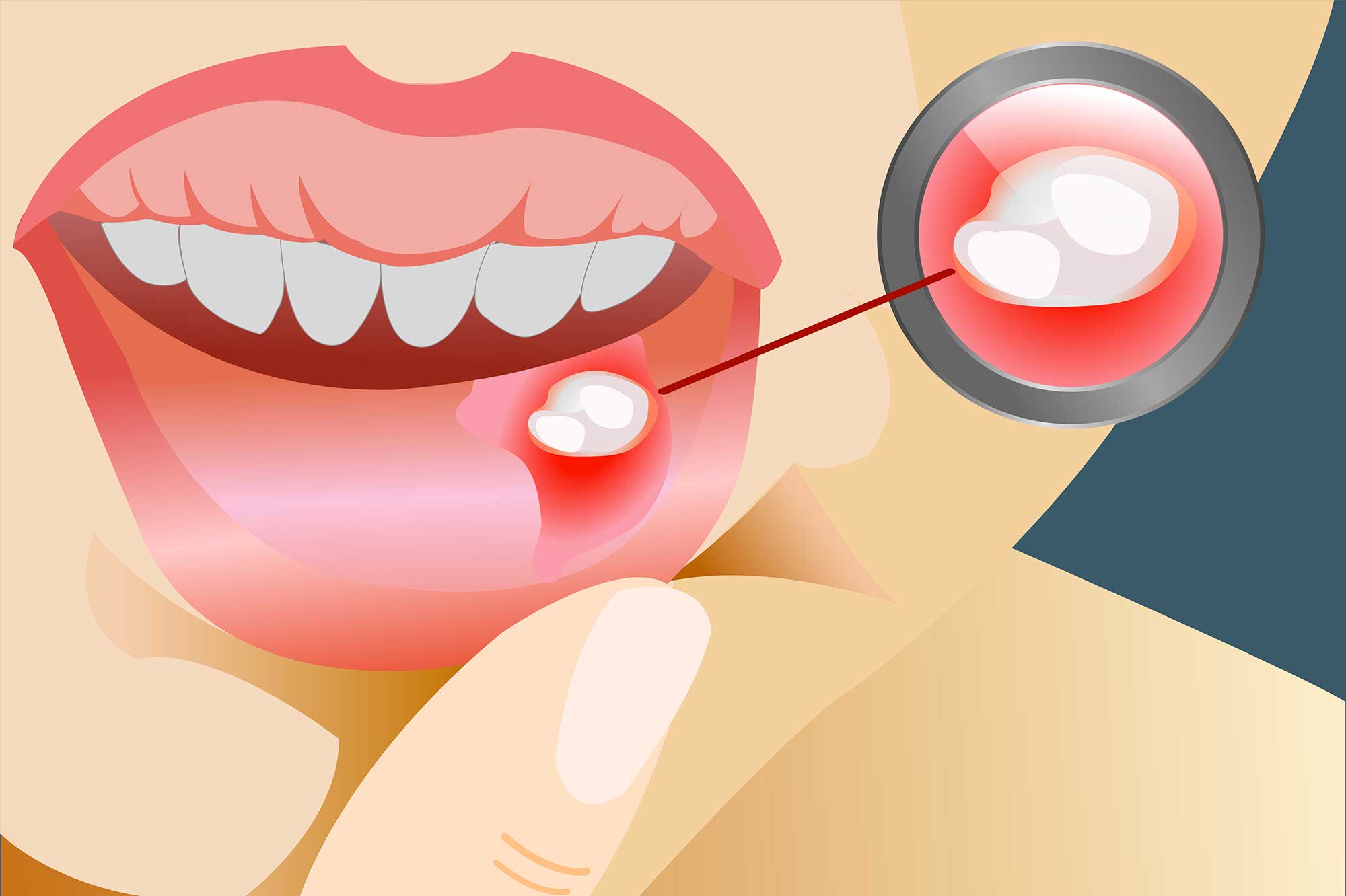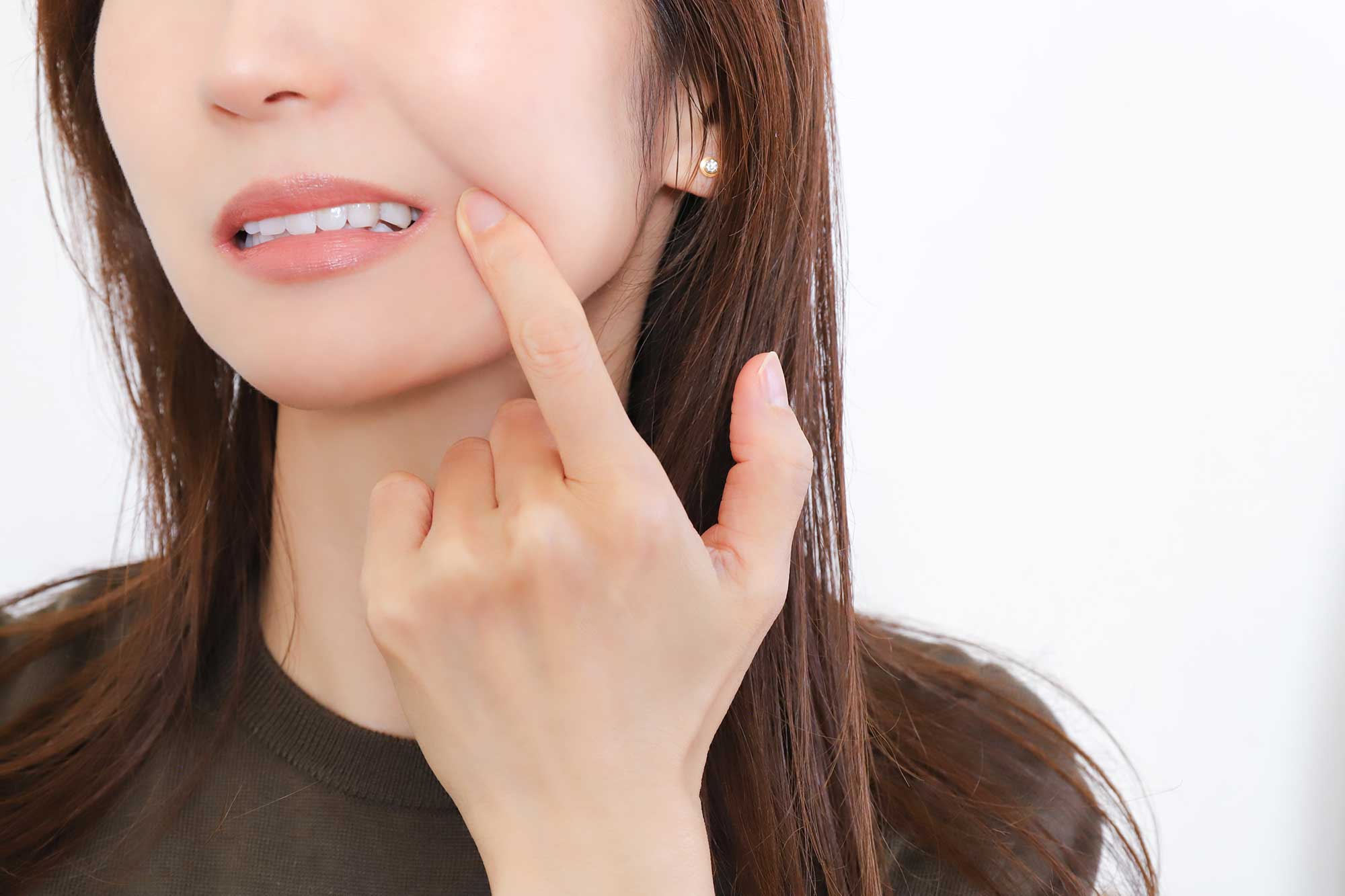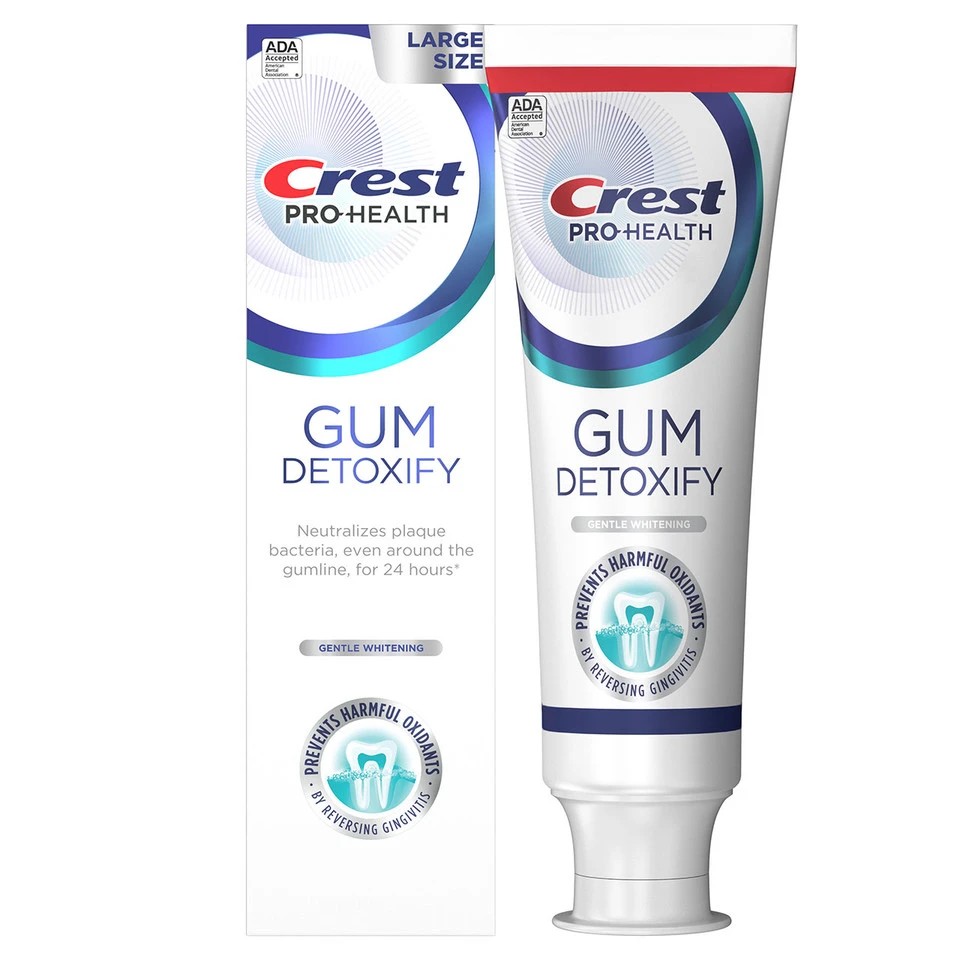Canker Sores: Causes, Symptoms, and Treatments

Summary
Key Takeaways
- Canker sores are non-contagious mouth sores that can lead to significant discomfort.
- The exact cause is unknown, but known triggers include injury, stress, and certain foods.
- Treatment options range from over-the-counter remedies to prescription medication for more severe cases.
- Help prevent outbreaks by maintaining good oral hygiene and avoiding known triggers.
Table of Contents

This blog has been reviewed and approved by Dr Robert Lee, a dental professional of 35 years
LEARN MORE >Key Takeaways
What Are Canker Sores?
Canker sores are shallow, round or oval ulcers with a white or yellowish center and red border. They typically develop on the soft tissues inside the mouth, including the inner cheeks, lips, tongue, gums, and roof of the mouth. They can be quite painful, especially when eating, drinking, and talking. Here are the main types of canker sores:
Minor canker sores
- Most common type
- Usually small and oval shaped
- Heal without scarring in one to two weeks
Major canker sores
- There are larger and deeper
- Can be extremely painful
- May take up to six weeks to heal
- Can leave scars
Herpetiform canker sores
- These are uncommon
- Often occur in clusters of 10 to 100 sores
- Can merge into one large ulcer
- In severe cases, the presence of multiple open sores can increase the risk of secondary infections, such as oral thrush
Causes and Triggers
The exact cause of canker sores isn’t fully understood, but several factors are believed to contribute to them:
- Injury to the mouth: Including accidental cheek bites, dental work, and aggressive brushing
- Certain foods: Acidic or spicy foods, including citrus fruits, tomatoes, and chocolate
- Nutritional deficiencies: Vitamin B12, Zinc, Folate, and Iron
- Stress: Emotional stress can be a trigger
- Hormonal changes: These include fluctuations during menstruation
- Underlying health conditions: Celiac disease, Crohn’s disease, and HIV/AIDS
- Family history: Genetics may play a role because canker sores tend to run in families
Symptoms of Canker Sores

- Pain, especially when eating or speaking
- Small, round or oval ulcer with a white or yellow center and red border
- Tingling or burning sensation, which presents a day or two before the sore appears
- Swollen lymph nodes
- Fever, general discomfort, or uneasiness can occur in rare instances
Treatment Options
Most canker sores heal on their own, but some remedies can help alleviate pain and speed up healing
- Over-the-counter topical treatments: Gels or creams containing a topical anesthetic like benzocaine can help numb the area and provide temporary relief.
- Mouth rinses: Such as a saltwater solution, baking soda rinse, or a mouthwash containing hydrogen peroxide can reduce irritation.
- Prescription medications: Used for severe cases, including corticosteroid ointments or mouthwashes to reduce inflammation, and antimicrobial mouthwashes like chlorhexidine to prevent infection. For frequent or severe outbreaks, sucralfate or colchicine may be prescribed.
- Home remedies: Ice chips, because sucking on ice can numb the area and reduce swelling, or a mixture of hydrogen peroxide and water. Milk of Magnesia in small amounts can be applied to the sore to neutralize acids and soothe discomfort.
- Pain relievers: Over-the-counter pain relievers can help manage discomfort.
Prevention
It’s not always possible to prevent canker sores, but certain practices can help reduce their frequency
- Maintain good oral hygiene: Brush regularly with a soft-bristled toothbrush and floss daily
- Avoid known triggers: Stay away from foods or substances that have previously caused sores
- Manage stress: Relaxation techniques can be beneficial, such as yoga and meditation
- Use mild oral care products: If you find you are sensitive to certain ingredients, you may want to try using a toothpaste or mouthwash that does not contain sodium lauryl sulfate (SLS), as it can be a source of irritation for some individuals.
- Protect your mouth: Ask your dentist or dental hygienist for orthodontic waxes to cover the sharp edges of braces or dental appliances
When to See a doctor
You should see a doctor if sores persist for longer than two weeks or if you experience unusually large or painful sores. If sores recur frequently, that can also warrant a visit. Other reasons to see a healthcare professional include if eating or drinking is difficult due to pain, or if sores are accompanied by high fever or other unusual symptoms.
Summary
Canker sores are small but painful lesions that appear inside the mouth. They’re common and aren’t contagious but can cause significant discomfort. The exact cause is unknown, but known triggers include injury, stress, and certain foods such as acidic or spicy foods. Nutritional deficiencies, such as being low in Vitamin B12, Zinc, Folate, or Iron, can be a factor.
Canker sores typically heal on their own within one to two weeks, but sometimes a visit to a healthcare professional is warranted, such as if sores persist longer than two weeks or if you experience unusually large or painful sores. Treatment options include over-the-counter topical treatments and mouth rinses. Prescription medications are available for severe cases, so talk to your dentist or dental hygienist.
If you find you are sensitive to certain ingredients, you can also try toothpastes and mouthwash that doesn’t contain sodium lauryl sulfate, which can be an irritant for some.
Oral Health Issues and How to Prevent Them
Common oral health issues can include cavities and tooth decay, gum disease, staining and sensitivity. The main culprit of which is often plaque buildup—a sticky film of bacteria that forms on teeth. If not treated, these conditions can lead to tooth loss and may even affect your overall health.
By following a complete oral care routine, you can help nip these issues in the bud, for a stronger, healthier smile:
- Brush 2X/day with an Oral-B iO Electric Toothbrush: An electric toothbrush, like an Oral-B iO, helps remove 100% more plaque than a regular manual toothbrush. The dentist-inspired round brush head surrounds each tooth as it adapts to the curves of teeth and gums to ensure a cleaner, healthier smile—even in hard-to-reach areas.
- Protect Your Smile with Crest Pro-Health Toothpaste: Make sure to brush twice a day with a stannous fluoride toothpaste. Not only does it help fight cavities and tooth decay, a Crest toothpaste formulated with stannous fluoride also keeps enamel strong, fights sensitivity, and offers 24-hour protection against plaque buildup with twice-daily brushing
- Rinse with Crest Pro-Health Mouthwash: Swish with an antibacterial mouthwash to rinse away leftover plaque, support gum health and leave your mouth feeling clean and fresh.
- Pair String Floss with an Oral-B Water Flosser: Flossing once daily helps dislodge plaque and debris from between teeth. Adding a water flosser to your routine can help remove any leftover food particles and plaque buildup for an added layer of protection.
By following a thorough oral care routine at home and visiting your dental professional at least twice a year, you can reduce the risk of developing tooth decay, gum disease, and protect your smile for years to come.
FAQs
-
How to get rid of a canker sore in 24 hours?
-
What does a canker sore look like?
-
Are canker sores an STI?
-
Who gets canker sores?
Sources
- https://my.clevelandclinic.org/health/diseases/10945-canker-sores
- https://www.healthline.com/health/dental-and-oral-health/how-to-get-rid-of-canker-sores
- https://www.mayoclinic.org/diseases-conditions/canker-sore/symptoms-causes/syc-20370615
- https://www.mouthhealthy.org/all-topics-a-z/canker-sores
- https://www.webmd.com/oral-health/ss/cm/slideshow-canker-sores
- https://www.webmd.com/oral-health/remedies-canker-sores
- https://www.webmd.com/oral-health/understanding-canker-sores-basics
- https://www.webmd.com/oral-health/canker-sores/
- https://www.ada.org/resources/ada-library/oral-health-topics/home-care
- https://www.cdc.gov/oral-health/prevention/oral-health-tips-for-adults.html
- https://my.clevelandclinic.org/health/treatments/16914-oral-hygiene
- https://www.mayoclinic.org/healthy-lifestyle/adult-health/in-depth/dental/
- https://www.nidcr.nih.gov/health-info/oral-hygiene
Biesbrock, A. R., et al. (2025). Randomized clinical trial evaluating kinetic benefits of desensitizing agents: Magnitude, onset, and stability of relief. Journal of periodontology, 10.1002/JPER.24-0688. Advance online publication. https://doi.org/10.1002/JPER.24-0688
He, T., et al. (2022). Novel findings on anti-plaque effects of stannous fluoride. American Journal of Dentistry, 35(6), 297–307. https://pubmed.ncbi.nlm.nih.gov/36508185/
White D. J. (2005). An alcohol-free therapeutic mouthrinse with cetylpyridinium chloride (CPC)--the latest advance in preventive care: Crest Pro-Health Rinse. American Journal of Dentistry, 18 Spec No, 3A–8A. https://pubmed.ncbi.nlm.nih.gov/16178129/
Zou, Y., et al. (2024). A meta-analysis comparing toothbrush technologies on gingivitis and plaque. International Dental Journal, 74(1), 146-156. https://doi.org/10.1016/j.identj.2023.06.009
Table of Contents
- What Are Canker Sores?
- Causes and Triggers
- Symptoms of Canker Sores
- Treatment Options
- Prevention
- When to See a Doctor
- Summary
- Oral Health Issues and How to Prevent Them
-
- FAQs
- Sources

This blog has been reviewed and approved by Dr Robert Lee, a dental professional of 35 years
LEARN MORE >
Sign Up
for gum care tips, expert advice, and exclusive offers.

Sign Up
for gum care tips, expert advice, and exclusive offers.



